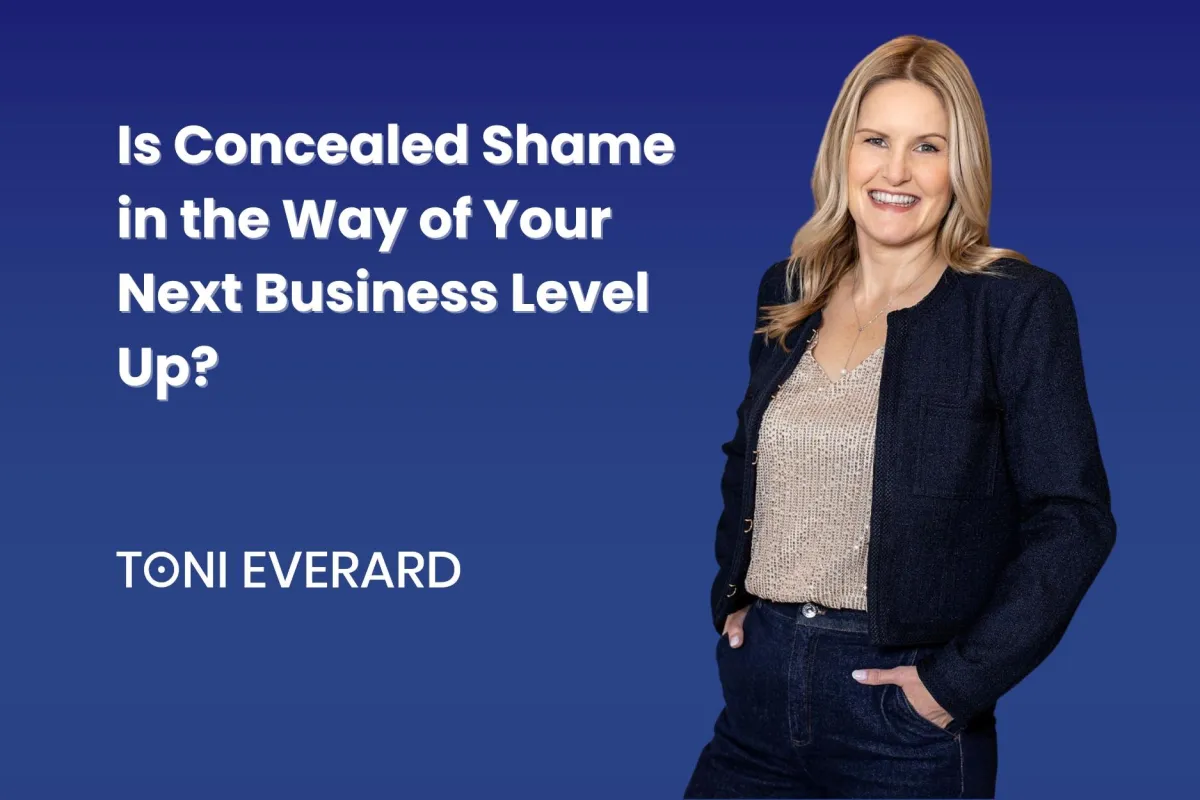
Is Concealed Shame in the Way of Your Next Business Level Up?
Why Emotional Safety Is the Missing Piece in Your Business Growth
You’ve built something incredible. You’re capable, passionate and ready for more.
More income, visibility, impact and ease.
But even with all that momentum, something still feels like it’s in the way.
It’s not your strategy. It’s not your skillset.
It’s something deeper, something emotional that’s quietly influencing how far you allow yourself to grow.
For many high achieving business owners, the invisible block between where they are and where they want to be is concealed shame. The residue left from growing up without full emotional validation.
The subtle beginnings of concealed shame
Concealed shame doesn’t always come from the type of trauma or chaos we imagine.
Often, it begins in homes that look completely “normal.” You might even say, as many of my clients do, I had a good childhood.
Now I’m not here to say that you didn’t, or that your parents are in any way to blame or that they weren’t doing the best they could.
But what I am saying is sometimes there are gaps in what we need and deserve as growing children that go completely unnoticed, or even worse, you wear as though it was your own fault or bad behaviour.
What I’m talking about is emotional neglect. The things that didn’t happen that you needed support with emotionally.
As an example, you might have experienced being upset and you were sent to your room until you’d calmed down by an irate parent, rather than having someone help you understand, validate and learn to regulate your emotions.
Maybe you were told to stop crying unless you wanted something to cry about or that you were being dramatic.
Or maybe you learned to manage your parents’ moods because if they were angry or disappointed, you felt responsible for making things right.
You weren’t allowed to have emotions of your own. They weren’t seen or validated.
So you adapted. You became capable, helpful, independent, or easy to love. Anything to stay connected and valuable to those you loved.
Sometimes it can be hard to recognise but here’s something that stops most of my clients in their tracks.
Did something ever happen to you as a child and you didn’t feel you could tell your parents? Even though you felt scared, upset or embarrassed.
This is a sign you didn’t have emotional safety in your relationship.
If you still don’t believe me, imagine if your own child was in the same situation and they felt they couldn’t tell you? How would you feel?
These are all signs of emotional neglect and it’s one of the most common and least recognised forms of conditioning that carries into adulthood.
The feeling that there's something wrong with me. That my emotional needs are wrong or a burden to others.
That’s where concealed shame begins.
How concealed shame shows up in business
Those early patterns don’t disappear when you start your business, they just evolve.
They show up in subtle ways that affect confidence, leadership and self worth.
You might notice yourself:
Holding back from saying what you really want to say online.
Discounting your prices or over delivering to prove your value.
Saying yes when you want to say no, to avoid conflict or disapproval.
Avoiding visibility, because being seen feels like exposure.
Feeling uncomfortable receiving praise or recognition.
These aren’t strategy problems, they’re safety patterns.
Your nervous system is still protecting you from what once felt unsafe - being seen, heard or different.
How shame limits your next level
Concealed shame often sounds like:
“Who am I to charge that much?”
“What if people don’t like me?”
“I don’t want to come across as too full of it.”
These thoughts aren’t self doubt, they’re identity patterns created in environments where you learned love and belonging were conditional.
They keep you working harder to prove yourself, instead of allowing yourself to receive.
They make success feel heavy instead of satisfying.
And they create an invisible ceiling in your business, not because you’re not ready, but because part of you still doesn’t feel safe being fully seen.
What changes when you rebuild emotional safety
When you start healing concealed shame and rebuilding emotional safety, everything begins to shift.
You stop hustling for worthiness.
You lead with calm authority.
You raise your prices without guilt.
You attract clients who respect your boundaries.
You express yourself more freely and feel confident being visible.
Your business stops reflecting your old emotional patterns and starts reflecting your true capacity.
Because when your nervous system feels safe, success becomes sustainable.
The deeper truth about growth
Your next level isn’t about doing more, it’s about feeling safe to receive more.
When you stop managing other people’s emotions and start honouring your own, your energy becomes magnetic.
You make decisions with clarity instead of fear.
You create offers that reflect your real value.
And you finally experience growth that feels calm, grounded and congruent.
Because business isn’t just what you build, it’s who you become while building it.
And when you feel safe being who you truly are, expansion becomes effortless.
✨ Want to dive deeper into this? I recorded a full conversation on this topic you can listen to on The Coaching Circle.
Ready to get to the next level in your life and business?
Here are 3 ways I can help you get there faster:
Join my 'Business Alchemy' coaching program.
Listen to my Podcast 'The Coaching Circle'
Discuss a 'Tailored Coaching Package' for you or your team
